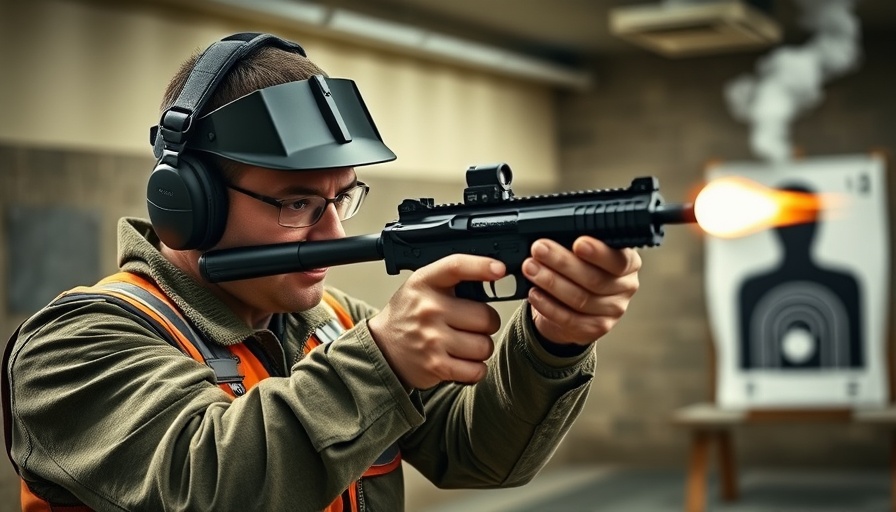
Mastering Emotional Control: Why It's Crucial in High-Stress Scenarios
In a chaotic world where unpredictability is the norm, mastering emotional control stands as a vital skill for those involved in public safety, self-defense, and high-pressure environments. John Hearn of Two Pillars Training, with over three decades of real-world public safety experience, emphasizes that emotional resilience is as essential as physical skill in handling difficult situations. His insights, shared in a recent discussion, illuminate the path toward developing this crucial competency.
In 'Train for Chaos: Master Emotional Control & Survive the Worst', John Hearn discusses the importance of emotional control in training, prompting us to analyze its implications further.
The Myth of Just Practice: Understanding the Learning Curve
One of the most intriguing points made by Hearn is the myth that relentless practice is the key to success. He challenges the conventional wisdom by highlighting the limits of what individuals can absorb. As he states, learning can only occur after manageable failures. Spreading practice across longer periods, rather than cramming, is critical—echoing studies that show slower, repeated training leads to better mastery. A key takeaway: it’s not merely the quantity of practice that matters, but the quality and spacing of it.
Training Your Emotions: The Overlooked Component of Firearms Training
Emotional control influences performance significantly, especially in crisis situations. Hearn discusses how managing emotional responses can dictate one’s ability to access learned skills in the heat of the moment. To enhance emotional resilience, individuals should engage in regular physical exercise, adopt healthy sleep habits, and challenge themselves with real-world scenarios, allowing skills to flourish under pressure.
Centering Practice: Balancing Focus and Feedback
In his approach to training, Hearn emphasizes the "three Fs": focus, feedback, and fix. He argues that practicing under realistic scenarios, such as using moving targets or practicing visualization of real-life situations, helps train the mind to respond effectively in stressful environments. Recognizing the significance of emotional and mental preparation makes one more equipped to act decisively when it matters most.
Recommendations for Effective Training: Going Beyond the Basics
Hearn’s instructor wisdom brings light to actionable insights that can elevate self-defense training. For instance, he advises simulating potential real-world scenarios, focusing on moving targets, and fostering engagement during practice. These strategies are designed to push learners toward an environment where their minds can adapt and function optimally even when stress ramps up.
Looking Forward: The Changing Landscape of Self-Defense Training
In wrapping up their conversation, the takeaway resonated: effective self-defense training merges traditional skills with modern insights on human behavior and psychology. As Hearn urges, it’s essential for trainers to guide learners beyond mechanical skills to promote holistic understanding. With chaos inevitably lurking in the shadows, being prepared mentally and emotionally can make the difference between success and failure.
Overall, embracing Hearn's comprehensive methods can be the step toward not just training effectiveness, but personal growth in emotional intelligence and resilience. For those dedicated to mastering their skills in firearms and self-defense, adapting emotional control strategies can elevate their training journey.
 Add Row
Add Row  Add
Add 



Write A Comment